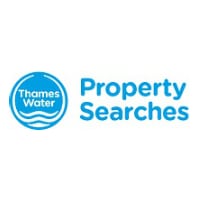 By Legal Futures’ Associate Thames Water Property Searches
By Legal Futures’ Associate Thames Water Property Searches
A commercial property lease is normally one of the biggest overheads a business has after wages. This is not taking into account the initial outlay for renovations often required to ensure the premises is fit to benefit the commercial activities of the leaseholder. However, many organisations instructing Solicitors to manage the legal aspects of securing a commercial lease decline to invest in basic property searches. This may be because they are not actively purchasing the property. But for those committing to high-value lease agreements, failing to undertake property searches can lead to legal disputes and/or significant costs to rectify a situation which could have been avoided had searches been carried out as part of the due diligence process.
Most people are understandably averse to spending unnecessary money. As a commercial lease will place the business owner as a tenant as opposed to a property owner, many may feel that paying money for searches should be the landlords’ responsibility, opting to assume that major maintenance obligations would belong to the property owner. However, this could be a significant and costly oversight.
Domestic tenants are protected under Section 11 of the Landlord and Tenant Act 1985. The legislation ensures that all property owners must ensure their property is in a good and safe state of repair. Unfortunately, commercial leases usually place the onus on the tenant to complete health and safety risk assessment checks, fire safety compliance, electrical equipment checks, gas safety checks and managing asbestos problems. Essentially, failing to provide a safe working environment, including areas involving the building a leaseholder rents, fall upon the shoulders of the tenant.
Once potential tenants are aware of the risk in not conducting searches on a commercial lease, they are likely to see the value in having them done. For example, in 2012, flooding caused £200 million worth of damage and loss to businesses. Many businesses whose insurance failed to respond, and those who did not have adequate cover, faced insolvency. Clearly, insurance offers protection, but without full knowledge of the risks, something that a survey provides, it is difficult to estimate the type and scale of insurance required.
As part of the due diligence process, potential tenants should also be encouraged to invest in extensive surveys, especially if they are unable to negotiate around the ‘full repair and insure’ terms standard in many commercial leases.
When it comes to commercial property leases, forewarned is forearmed, and often more cost-effective in the long-term.
To find out more about commercial property leases, register to attend our forthcoming Commercial CPD event on the 26th September in London. Email twps.events@thameswater.co.uk today quoting ‘LeasePR19’.
At Thames Water Property Searches we call ourselves “the property search experts” for good reason. We are not only a search supplier, but we also are a search producer of the CON29DW and a partner of NLIS. Working closely with leading suppliers we ensure that we not only sell the searches but fully understand the detail within them.
We understand complexity and take the time to support you with issues that may arise offering that bespoke service which you normally only receive from the smaller companies and at a premium. Here at Thames Water Property Searches you get that service as standard, along with the trusted brand of Thames Water knowing that we will always be here to support you. For more information please contact us on 0845 070 9148 or email twps@thameswater.co.uk.










